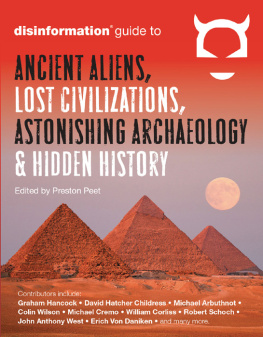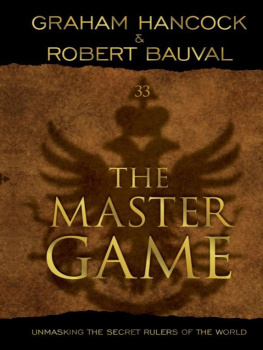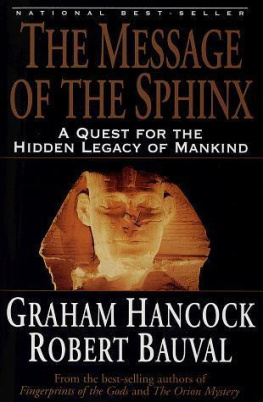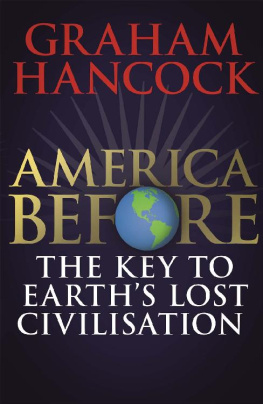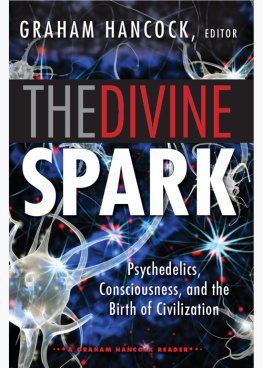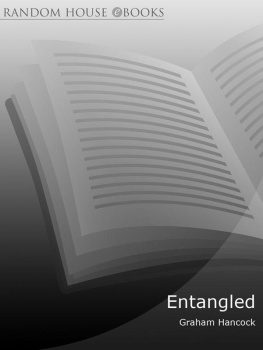I would like to dedicate this work to my wife, Stephanie, son, Jason, and daughter, Sophie, and thank them for offering their support, love, and encouragement in our search, as a family, for new truths.
LOST KNOWLEDGE of the ANCIENTS
These accounts of lost or anomalous knowledge are building blocks of an alternative universe, and, taken altogether, they reveal something of the deep structure of this alternative universe. They also show that this universe made up of anomalies may be more real than the everyday, commonsensical one!
MARK BOOTH, AUTHOR OF
THE SECRET HISTORY OF THE WORLD
Acknowledgments
I came to the idea for this compilation with the cooperation of author/researcher Graham Hancock and the contributors to his online forum at www.GrahamHancock.com. This volume can be considered a select offering from the many dozens of excellent articles and essays on the site that speak to the search for lost knowledge and the knowledge of the great astronomical cycles of our existence.
I would like to thank and acknowledge the kind friendship and support of Graham Hancock, John Anthony West, Robert Schoch, and Walter Cruttenden of the Binary Research Institute (BRI), and all of the contributing authors who cooperated in putting this work together. Together, we offer these essays with a commitment to the principles of embracing the pursuit of knowledge and truth through rigorous, open-minded research, discovery, and critical analysis.
Contents
INTRODUCTION
Glenn Kreisberg
ONE
HAS CONVENTIONAL SCIENCE MISSED SOMETHING PROFOUND?
Robert M. Schoch, Ph.D.
TWO
TODAY'S NEW SCIENCE PHILOSOPHY-OLD OR NEW?
Edward F. Malkowski
THREE
IS THE KEY TO EGYPT'S PAST REFLECTED IN THE STARS ABOVE GIZA?
Robert Bauval
FOUR
TWO PORTALS INTO THE SAME WORLD?
Mark Booth
FIVE
TAKING TRADITIONALISTS TO TASK
John Anthony West
SIX
THE SECRET HISTORY OF NASA
Richard C. Hoagland
SEVEN
DOES PRECESSION CAUSE THE RISE AND FALL OF CIVILIZATION?
Walter Cruttenden
EIGHT
UNLOCKING THE MYSTERY OF GIZA
Scott Creighton
NINE
HAVE COSMIC RAYS AFFECTED HUMAN EVOLUTION?
Andrew Collins
TEN
DID ANCIENT HUMANS HAVE KNOWLEDGE OF THE ELECTROMAGNETIC SPECTRUM?
Glenn Kreisberg
ELEVEN
DOES THE CRADLE OF ANCIENT CIVILIZATION LIE OFF THE COAST OF INDIA?
S. Badrinaryan
TWELVE
ANCIENT STAR CITIES OF THE AMERICAN SOUTHWEST
Gary A. David
THIRTEEN
HAS IT OCCURRED DURING HUMAN EXISTENCE?
Flavio Barbiero
FOURTEEN
NEW FINDINGS ABOUT THE FIRST AMERICANS
Graham Hancock
I N T R O D U C T I O N
On the Search for Lost Knowledge
GLENN KREISBERG
A revolution is underway in our world, fostered by decades of research and well documented evidence from illustrious scholars such as Robert Bauval, Graham Hancock, John Anthony West, and Robert Schoch (sometimes affectionately referred to as the four horsemen). This collection of essays adds to those voices and, when taken as a whole, provides astounding, yet compelling proof of an approaching shift in our perspective regarding human origins and the roots of civilization. Long-standing paradigms are beginning to crumble and realign to this new order of thinking.
This thought revolution represents a direct challenge to an orthodox, mainstream academic establishment that continues to try to debunk sound evidence and theories that have not only stood the test of time but that have already attained accepted status in the court of public opinion. Of course, orthodoxy resists and fights change by its very nature. Acceptance by this establishment would require a shift in perception regarding the knowledge that mankind possessed in remote epochs.
Why lost knowledge? Because much of the research, evidence, and theories presented in this collection are not currently included in mainstream, traditional academic curriculums. Nor are they seriously pursued at universities or published in scholastic textbooks and journals, although that is slowly changing. The battle to have them included and accepted has stirred controversy worldwide for decades, in some cases prompting attacks by academia against those involved in this fight.
Lost Knowledge of the Ancients offers the reader a selection of well researched and thought provoking articles and essays covering alternative science and history. We have tried to stay within the broad theme of lost knowledge and cycles of time, while exploring nontraditional theories and perspectives that challenge long-standing assumptions. The diverse offerings of these prolific authors and researchers present a unique snapshot of some of the latest findings in cutting-edge scientific and historical research, while exploring new theories and fresh challenges to existing ones.
By recognizing that many modern discoveries are actually rediscoveries of lost knowledge from past civilizations, the essays in this collection aim to contextualize, within the bigger picture of human knowledge, the achievements and events giving rise to a fundamental understanding of where our present time fits into the past and the future; into the cycle of human existence.
These essays also connect the dots, so to speak, for readers who will discover that the whole picture adds up to more than the sum of its parts. Through these writings, readers will realize that many of these authors, scientists, and researchers suggest that there is a cycle of time and consciousness that profoundly affects the way we look at history. Each article in this collection articulates something that builds on the overall theme.
For example, Dr. Schoch looks at possible higher states of consciousness (telepathy, clairvoyance, and so on) in a past age, not just because he is interested in the paranormal, but also because it adds to and builds upon his earlier work. He finds that these phenomena have real scientific support that buttresses the ancient stories of a pre-Babel era when mankind communicated at a higher level, allowing such things as building great structures long before there was any form of written language (heretofore considered a prerequisite to civilization). Edward F. Malkowski, in his essay, looks deeply at the wisdom and cosmology of ancient Egypt and finds a parallel to modern string theory and quantum physics, which wouldnt be considered possible under the linear paradigm of history.
So, as the paradigms of science and history shift (virtually on a daily basis), this committed breed of scientific researcher endeavors to break new ground and report on remarkable discoveries and astonishing new theories and discoveries in the fields of science, history, philosophy, and religion. Committed to standards of scientific methodology, this collection brings to the inquisitive reader the most relevant, insightful, and startling scientific and historical information published in our world today.
These authors rarely write outside their fields. In fact, some of them may not even fully realize how their work fits into the bigger picturebut by fitting all the pieces together, we now have enough knowledge and evidence to tentatively confirm that what the ancients themselves told us is real: Time really does move in a cycle, and the myths related to this cycle reveal both a long-lost Golden Age, and a new one that approaches!


